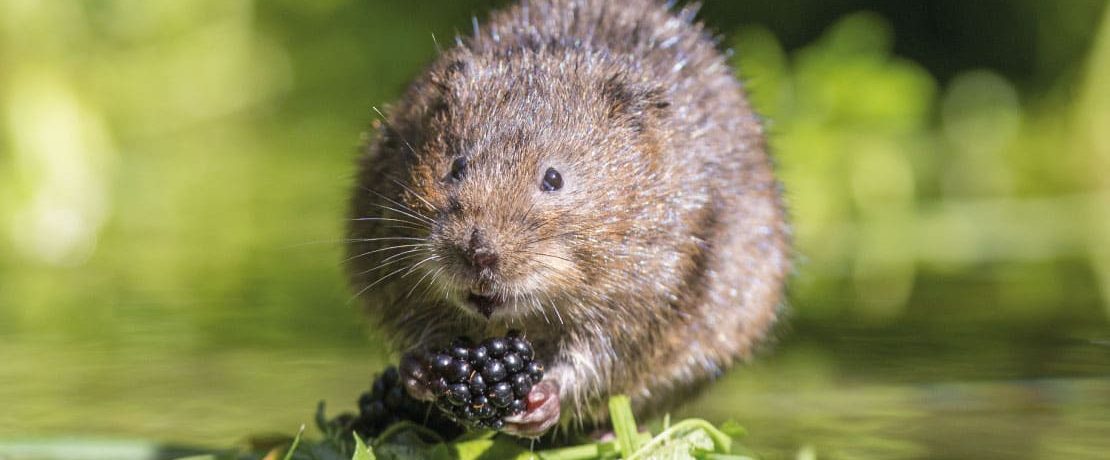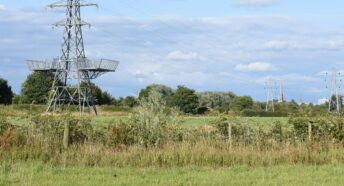Reversing biodiversity loss - what does it mean for the countryside?
Biodiversity is essential for human life and a flourishing countryside. It’s time to take care of it.
The evidence is stark: without significant changes, 1 million species will be eradicated from the planet. The loss of species and habitats poses as much a danger to life on Earth as climate change does. These are the messages of the 2019 IPBES Global Assessment report, the first major international review of biodiversity since 2005.
The report is a systematic review of 15,000 scientific and government papers, as well as drawing on indigenous knowledge from around the world. The UK government has signed up, along with 131 other countries – and we’ll be campaigning to make sure that this translates to action.
Why does biodiversity matter?
The technical term for all life on earth, ‘biodiversity’, is a scientific measure of the variety of species, habitats, and ecosystems across the planet. It’s essential for human existence and a flourishing countryside. As well as underpinning the food we eat and the air we breathe, we depend on it for protection from other threats, like pollution, flooding and climate breakdown.
The IPBES report assessed changes in biodiversity over the past five decades, and demonstrates that rates of extinction are accelerating hundreds of times faster than usual. The red squirrel, natterjack toad, and turtle dove are all in peril in our countryside, alongside many insects that we rely on. But why? What is driving our living world to the brink? And, most importantly, what can be done?
The biggest driver of biodiversity loss is ‘land-use change’: specifically, converting and managing wild land for agriculture and development. Agriculture in particular has had the largest impact on ecosystems that people depend on for food, clean water and a stable climate.
Agriculture
We’ll need to significantly change the way our food is grown to avert disaster. Last year CPRE’s report explained how the thin layer of soil covering surface of our planet is critical to all life on earth. Healthy soil hosts an incredible diversity of life from tiny, single-celled organisms to fungi, insects, and animals like moles and badgers. Protecting the nation’s soil is essential, but we must also reverse the trends by regenerating it to health. Farmers should be supported to phase out ploughing, cut down on fertilisers and pesticides, and diversify their crops.
Countryside nature restoration
Restoring nature is critical to reversing the loss of biodiversity. Ecosystems don’t need to be lost forever; it’s possible to restore them by planting trees, shrubs, wildflower meadows, and reintroducing lost animals. In National Parks and across the countryside, we must stop the draining and burning of peat bogs. The IPBES report also highlighted the importance of local communities taking the lead in such conservation projects, with benefits for people as well as nature. CPRE’s work on enhancing our Green Belt is set to tackle these issues head on.
Climate change, climate change, climate change
Biodiversity and climate are inseparable, and combined, present the greatest threat our countryside has ever faced. Restoring nature is our primary defence against climate breakdown, and climate breakdown will continue to accelerate the decline of nature. Natural ecosystems suck up 60% of our carbon emissions, and nature-based solutions, like planting trees, nurturing soils, and restoring ecosystems, can provide over a third of the climate solutions needed until 2030 with huge benefits for biodiversity.
What next?
All these changes require big commitments from the government. CPRE will be redoubling its efforts to ensure it is held accountable – through our work with partners such as the Climate Coalition and our partnerships with organisations such as Wildlife and Countryside Link and Greener UK. Continuing on our current path will lead to staggering losses for the countryside and us all, but by acting ambitiously, we have the chance to transform our future so people and nature thrive together.
This blog was originally published on Wildlife and Countryside Link. Mair worked at CPRE as a graduate assistant before moving on to a brilliant role at the RSPB.









